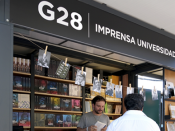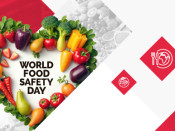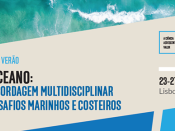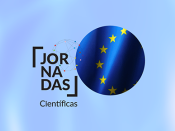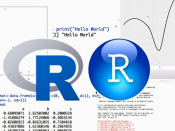Lúcia Barão
Post-Doc Researcher (PSE Group)
Silicon (Si) is a chemical element frequently associated with highly abundant silicate minerals in the Earth crust. Over millions of years, the interaction of such minerals with the atmosphere and hydrosphere produces a myriad of processed compounds, and the mineral weathering consumes CO2 during the process. The weathering of minerals also triggers the export of dissolved Si (DSi) to coastal waters and the ocean. Here, DSi is deposited in diatom frustules, in amorphous biogenic form (BSi). Diatoms account for 50% of oceanic primary production and are crucial for the export of carbon into the deep sea. In recent years, it has been acknowledged that terrestrial systems filter Si transitioning from the terrestrial mineral to the aquatic (marine and coastal) biological pool, through the incorporation of DSi into plants. In this process, DSi is taken up by roots together with other nutrients and precipitates in plant cells in amorphous structures named phytoliths. After death, plant tissues become mixed in the top soil, where BSi is available for dissolution and will partly control the DSi availability in short time scales. Additionally, Si originated from soil forming processes (non-BSi) can also significantly interfere with the global cycle, through clay precipitation and Si adsorption. The Si cycle in terrestrial ecosystems is then a key factor in coastal ecology, plant ecology, biogeochemistry and agro-sciences.
The traditional methods, developed to isolate diatoms in ocean sediments, only account for simple mineral corrections. Barão et al. 2015 have adopted a novel continuous analysis method (during alkaline extraction) that uses Si-Al ratios and reactivity to differentiate biogenic from non-biogenic fractions. The method was originally used in marine sediments, but it was adapted to be applicable in a wide range of terrestrial, aquatic and coastal ecosystems. The first focus was soils under strong human impact in temperate (European) zones, since cultivation influences the Si cycle with multiple consequences for the environment. Our results showed that the intensity of the human pressure in the agricultural systems defines the level of BSi depletion, but that parent material and weathering degree can also provide the soil with other reactive non BSi fractions. Secondly we analysed the influence of non-BSi pools of volcanic origin in soils and sediments subjected to volcanic activity. Since BSi is often used as a proxy accounting for the biological Si influence in the soil dynamics or the diatom productivity in lakes, correct measurements are mandatory to make proper interpretations. Results showed that a separation method is fundamental in these systems with volcanic shards and strongly weathered products, both of which are also significantly prone to dissolution in the common alkaline sequential extractions. By separating fractions, the continuous analysis prevented the overestimation of BSi content in soils and sediments while also providing information on other individual Si fractions that might be used as paleo-tools themselves.
Moreover, current research of Si in agricultural fields has shown that particular crops such as cereals, tomatoes or cucumbers are Si-accumulators. The beneficial effects of Si in these accumulator plants range from alleviation of metal toxicity (Al, Zn, Cd …), alleviation of water and salt stress to improvement of nitrogen and phosphorus absorption or increase resistance to pests and diseases. However, the exact soil-plant mechanisms behind this influence and the biotic and abiotic conditions that favour these interactions are unclear. The future work developed will then focus on possible forms of Si fertilization and the adoption of agriculture management practices (AMP) that potentiate the beneficial Si interactions within the plant and with other nutrients in Si-accumulator crops in deficient conditions. The study case will be the cereal production in Alentejo since Cereals are the second most important products in Portuguese agricultural production (24% in mass, 28% in area). Alentejo is the main region where cereals are produced (59% in mass, 55% in area), but while Cereals are key ingredients for many food products and strong contributors to the economic value added by the agri-food sector, soils in Alentejo are of low/medium fertility facing different challenges: water deficiency, P limitation and low levels of organic matter.


